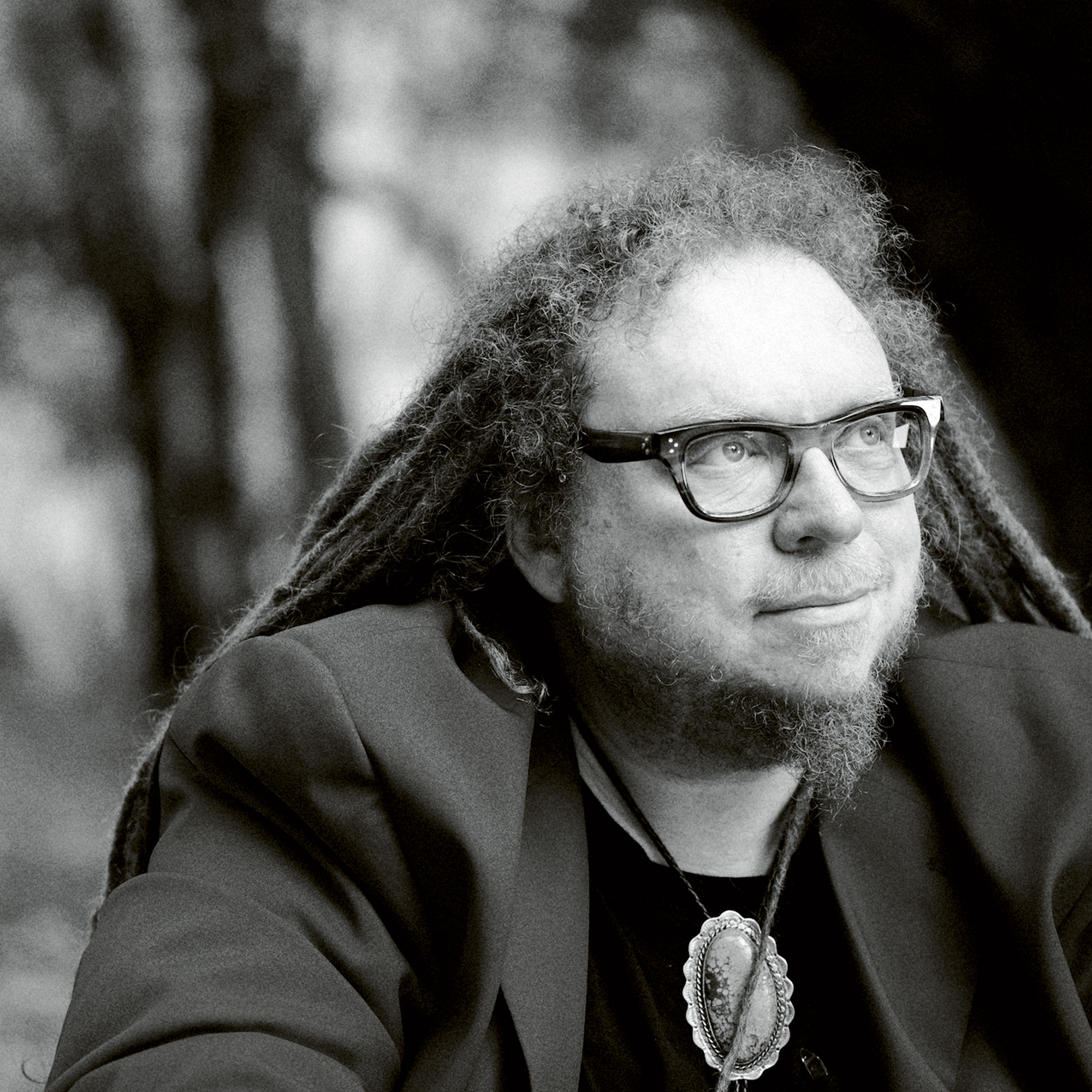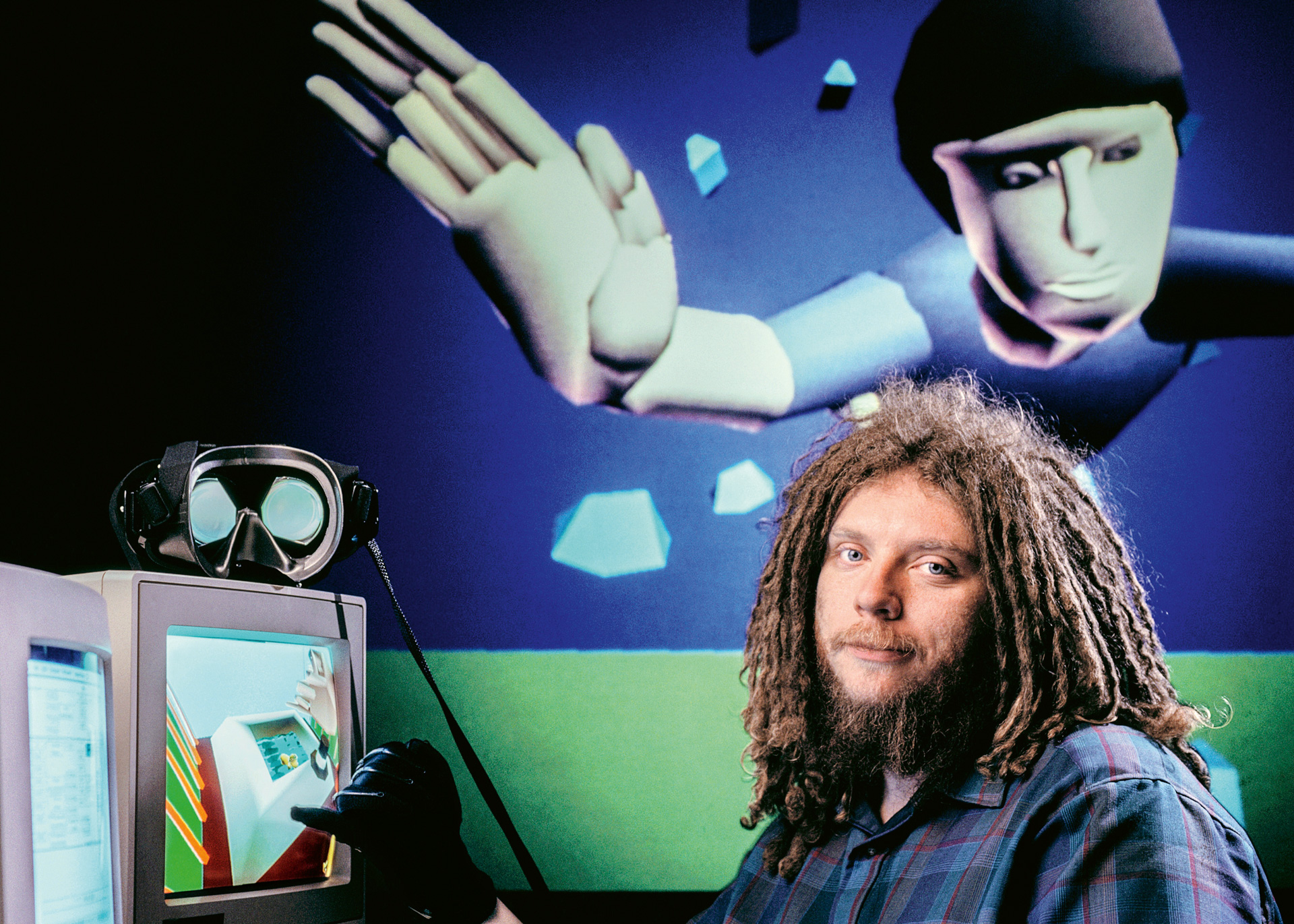
Technology
Jaron Lanier
February 09, 2021
Virtual reality has huge potential to promote connection and foster democracy, but only if it is used ethically and for the common good, warns the Silicon Valley visionary Jaron Lanier, in dialogue with Marco Kindler von Knobloch.
Jaron Lanier is a computer scientist, composer, and visual artist. He is widely recognized as a founding father of the field of virtual reality (VR) and often credited with having coined the term. His work has hugely influenced the technology world, prompting developments in immersive avatars and VR tools, contributing to early advancements in medical imaging and surgical simulator techniques, and pioneering the use of VR in design, musical stage performance, etc. He is the author of You Are Not A Gadget: A Manifesto, Who Owns The Future?, and Dawn of the New Everything.
By Marco Kindler von Knobloch
09/02/ 2021
·
- Share
You are credited with pioneering virtual reality (VR) and have devoted your life to advancing this field. At the same time, you are also a musician and composer. In a way, your two passions seem to complement each other. What drew you to VR and how does it connect to music?
I am interested in the ways that people can connect to one another. It is amazing to me that not that long ago, maybe 100,000 years ago, people couldn’t talk to each other—or at least not very much—then we developed this thing called language that defines so much about how we connect. Then came writing, and then photography, recording, movies, computing, virtual reality. There is a notion that you can think of history as a process in which people are elaborating the ways in which they can connect to one another. This concept of human history is interesting and hopeful because it doesn’t necessarily have to come to an end, whereas a lot of the ways we think about the world changing seem, to me, to have been catastrophic. If all there is to history is people making themselves more and more powerful, then eventually that power becomes overwhelming and we destroy ourselves. On the other hand, this notion of basing the human adventure on increasing forms of connection is one that should be able to go on forever, and in an interesting and creative way, and so music and VR become two parts of the same process.
An experiment in the ways we can connect to each other – that is a beautiful way of looking at human history. The subject of VR brings in the next question: in the past, you talked about “virtual avatars” as a tool for learning. How do you think VR can be applied in the context of education? What sort of application does it have in a classroom?
Optimistically speaking, there have been a few examples of using virtual reality in education that have been rather spectacular, even though no-one has managed to take advantage of those results on a large scale. But I wouldn’t advocate sending large numbers of virtual reality headsets to developing regions or something like that. I think that there are better uses for resources right now and the technology becomes obsolete too quickly.
What would be some interesting examples of how VR technology could be used in education?
Some examples would be having kids turn into letter avatars so that they become a letter by taking a pose; when they spell by going through a sequence of poses they don’t appear to have dyslexia, even in cases of strong dyslexia. That is a small example, but there are some other more profound examples, such as when kids turn into molecules or geometric structures. What you do in this case, rather than using VR as a tool for presenting information three-dimensionally, you present it somatically, so as to make the subject’s body into the same thing as the topic—in other words, you become the thing you are studying. This, for me, is the mode of virtual reality that shows the most promise. However, it is also very difficult to implement and many virtual reality products that are available today aren’t sophisticated enough to implement this idea, so it remains somewhat esoteric and academic; yet, it is something that has tremendous potential.
Earlier, you mentioned that we should be cautious about the application of technology. What do you mean by this?
The primary caution concerns the way technology has been entering education, especially primary education, which in my view has an element of corruption to it. Big tech companies are trying to grab schools and kids in such a way that they become ensnared in their ecosystem so that a student’s data can be taken, and they could be trapped for life. I am particularly concerned when I see classrooms all over the world becoming centred on products for corporations that ultimately don’t make money from students, or schools, or parents, but instead from third parties and advertisers, or even political operatives. This pattern is potentially destructive, and whatever benefits we can deliver through this technology, they are probably not good enough to balance out the dangers of the economic structure that is currently financing the entry of technology into education. Sadly, at the moment, technology in education might be doing more harm than good in the world. Not because of the technology itself, but because of the relationships of the businesses to the children in the classroom.
Do you think that VR could or should be used in any way as a pedagogical tool for incorporating universal values and bridging cultures?
If you were talking to me in the 1980s and I was in my 20s, I would make a very strong case that, in fact, that is exactly what should happen and could happen. Today, there are artists working with VR who take that approach. A well-known example would be Chris Milk. He has done a 360° camera documentation of what it is like to be in a refugee camp. I am, of course, supportive of these experiments, but as you might imagine, I have to offer the same caution as I did about VR in the classroom. Just because something can be used well, it doesn’t mean that it will be used well. If any medium—whether books, VR or anything else—can be used to promote positive values, the same medium can be used to promote the agenda of some random strongman, for example. In fact, this is exactly the problem we have been having lately.
There is a new generation that is growing up with this “business model” and this understanding of the value of information. So, not having known the world as it “used to be”, are you afraid they won’t see a need for change? Does the responsibility for course correction fall upon our current generation?
This question really troubles me. I am really worried about the younger generations. On the one hand, whenever I talk to younger people, there is that sense of hope that should be there, but, on the other hand, there is a sense of despair that I don’t think I have ever heard before, and I have been talking to high school and college students for decades now. As an anecdote, I was recently in New Jersey talking to teenagers about technology, and I took questions from them. One of them asked: “If we are going to be obsolete because of robots, then why did our parents have us? And why are we here?”. This is just something that I have never heard before, and when the question was asked there was this kind of agreement in the room. So, if their starting point is one of despair, then it is going to be hard for them to be able to imagine change, to be able to imagine something that is better.
Humanity has been through so many close calls, so many disasters, that I really believe that, based on our past record, we will make it through again and everything will be ok. But I really have to say that it is a fearsome time; it is a scary time.

Jaron Lanier, photographed in 1990, surrounded by demonstration images of the virtual, non-real worlds that VPL had created.
I am relieved to hear that you remain optimistic, but it seems there are so many huge changes happening at the same time. Do you think that the current education model needs reimagining? What role do you think education should play in preparing the younger generations?
Well, you know, ideally, education should be the core process of a decent society and the core process of a creative civilisation. It is not just “aiding”, it should be the centre of everything, and it should be the central activity of civilization, once people have their basic needs taken care of. However, education, as it exists today, very rarely has that character, and there are many examples I could give you. It is still almost universally the case that, if you take a technical degree in engineering or information science, you are not required to take an ethics class. Now this is beginning to change. There are some programmes that have that requirement, but it is just remarkable to me that you can get a PhD in computer science in most places without ever having been challenged to think about what is actually going on in the world, or what the world needs—that is just astonishing and appalling. There is just still a very long way to go to get to the point where education is serving our needs well.
I would like to add a particular comment as well about primary education. There is currently a big drive all over the world to teach children computer programming, and what is meant by this is how to do 1950s-style elementary programming. Now there is nothing wrong with that, it probably teaches a little bit of thinking skills and discipline and that is all fine. However, the kind of programming that is having an impact in the world today is completely unlike the kind that you learn about in these courses. The world today is being run by machine learning algorithms and they are treated as “black boxes” that a special few can understand. Currently, there is only a tiny handful of projects trying to teach kids about this kind of programming. I am involved in this initiative, I am trying to improve that situation, but, in most cases, the type of education that can help people prepare for their world and understand their world is completely absent.
Do you think that education systems should instead focus on nurturing and teaching a set of “master competences” that then can be applied across different contexts and unforeseen scenarios?
Yes. When we teach something like literature, we believe that we should also teach critical thinking; but when we teach something like technology, we believe that we should only be teaching skills, and that is a false distinction. If anything, critical thinking is more important for technology. So, yes, I am happy for kids to be learning skills, although in reality it will only be a small minority that will have an opportunity to apply these skills in a job running a deep learning system somewhere in the future. What I would really like kids to learn today is critical thinking regarding technology; that is the key missing link that just has to be taught.
*This interview has been edited for length and clarity.

